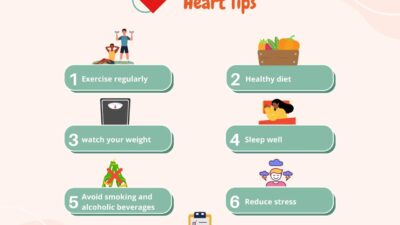As review kitchen remodeling takes center stage, this opening passage beckons readers into a world crafted with good knowledge, ensuring a reading experience that is both absorbing and distinctly original. Remodeling your kitchen is not merely a home improvement project; it is an opportunity to enhance functionality, aesthetics, and the overall value of your space. With careful planning and consideration for both design and practical needs, a kitchen remodel can transform your culinary environment into a delightful hub for family and friends alike.
In this overview, we will explore the various aspects of kitchen remodeling, from understanding the fundamental elements of design to navigating the intricacies of budget management. Each step is crucial in ensuring that the final result not only meets your expectations but also reflects your personal style and enhances the enjoyment of your home life.

In today’s fast-paced world, it is essential to maintain a healthy lifestyle to ensure overall well-being. This article aims to delve into the multifaceted aspects of health, highlighting the importance of balanced nutrition, regular physical activity, mental health awareness, and preventive healthcare measures. First and foremost, nutrition plays a critical role in maintaining good health. A well-balanced diet is not merely about eating the right foods but also about understanding the nutritional value of what we consume.

A diet rich in fruits, vegetables, whole grains, lean proteins, and healthy fats can provide our bodies with the essential nutrients required for optimal functioning. For instance, fruits and vegetables are rich in vitamins, minerals, and fiber, which help in maintaining digestive health and reducing the risk of chronic diseases. When planning meals, it is beneficial to adopt a variety of food groups to ensure an array of nutrients.
The concept of “eating the rainbow” can be an engaging way to encourage diverse food intake. This approach emphasizes the consumption of fruits and vegetables of different colors, which correspond to different phytonutrients, providing varied health benefits. Additionally, hydration is an often-overlooked aspect of nutrition; drinking adequate water is crucial for maintaining bodily functions, regulating body temperature, and supporting overall health.Equally important as nutrition is the role of physical activity in achieving and sustaining good health.
Regular exercise not only aids in weight management but also significantly contributes to mental and emotional well-being. Engaging in physical activity releases endorphins, which are known as the body’s natural mood lifters. Whether it’s brisk walking, cycling, swimming, or participating in a sport, finding an enjoyable form of exercise can make it easier to incorporate into daily life. Health authorities recommend at least 150 minutes of moderate aerobic activity each week, along with strength training exercises on two or more days per week.
Moreover, the mental health aspect cannot be overlooked in discussions about health. The stigma surrounding mental health issues can often deter individuals from seeking help, but it is vital to recognize that mental health is just as important as physical health. Practices such as mindfulness, meditation, and yoga can significantly benefit mental well-being by reducing stress and anxiety levels. Furthermore, fostering strong social connections and seeking support from friends and family can provide a robust safety net during challenging times.Preventive healthcare is another fundamental pillar of maintaining health.
Regular health check-ups and screenings can help detect potential health issues before they become serious. Vaccinations play a pivotal role in preventing a range of diseases and protecting public health. Staying informed about personal health and understanding family health history can also provide insights into potential health risks, prompting proactive measures.Incorporating these elements into daily life may seem overwhelming; however, adopting a gradual approach can lead to sustainable changes.
Setting realistic goals and making incremental adjustments can foster a more manageable transition to a healthier lifestyle. For instance, starting with small dietary changes, such as incorporating an extra serving of vegetables at each meal or substituting sugary beverages with water or herbal teas, can make a significant difference over time.In conclusion, the journey toward a healthy lifestyle is an ongoing process that encompasses various dimensions of health.
By focusing on balanced nutrition, regular physical activity, mental health awareness, and preventive healthcare measures, individuals can enhance their quality of life and well-being. Remember that each step taken toward better health, no matter how small, contributes to long-term wellness and vitality. Embracing a holistic approach to health can empower individuals to lead fulfilling lives while inspiring those around them to embark on their wellness journeys as well.

Key Questions Answered
What are the key factors to consider in kitchen remodeling?
Key factors include layout, functionality, budget, and style preferences.
How long does a typical kitchen remodel take?
A typical remodel can take anywhere from a few weeks to several months, depending on the scope of work.
What is the average cost of a kitchen remodel?

The average cost can vary widely but generally ranges from $20,000 to $50,000 for a mid-range remodel.
Should I hire a professional or can I do it myself?
It depends on your skill level and the complexity of the project; hiring professionals can ensure quality results.
What trends are popular in kitchen design right now?

Popular trends include open floor plans, sustainable materials, and smart home technology integration.













